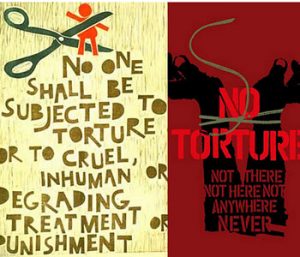By Dr Diego Acosta Arcarazo, Senior Lecturer in Law (University of Bristol Law School) and Ms Leiza Brumat, postdoctoral researcher (CONICET).*
 Argentina’s history and national identity are inextricably linked to immigration. Indeed, between 1880 and 1930 the country was the world’s second largest recipient of migrants, behind only the US. The immigration policies of both nations were often aligned during the period. In 1902, for example, Argentina adopted a law facilitating the expulsion of foreigners amid concerns about labour movements and anarchists; in 1903 the US banned the naturalization of anarchists. After the US approved its 1917 Immigration Act, which excluded from entry numerous groups including epileptics, alcoholics, criminals, beggars, and those with a physical disability, Argentina quickly reacted with similar laws in 1919 and 1923, fearful that those denied permission to disembark in US ports would continue their journeys to Buenos Aires.
Argentina’s history and national identity are inextricably linked to immigration. Indeed, between 1880 and 1930 the country was the world’s second largest recipient of migrants, behind only the US. The immigration policies of both nations were often aligned during the period. In 1902, for example, Argentina adopted a law facilitating the expulsion of foreigners amid concerns about labour movements and anarchists; in 1903 the US banned the naturalization of anarchists. After the US approved its 1917 Immigration Act, which excluded from entry numerous groups including epileptics, alcoholics, criminals, beggars, and those with a physical disability, Argentina quickly reacted with similar laws in 1919 and 1923, fearful that those denied permission to disembark in US ports would continue their journeys to Buenos Aires.
Of course the days when those refused entry into the US would instead try their luck in Argentina are long gone. Whilst Argentina continues to be the largest recipient of migrants in South America, in the global context it’s no longer a significant destination country. Fewer than 5% of its population are foreign born according to official statistics – almost 90% of them from South America.
Yet one can see similarities between the executive order signed by Donald Trump on 27 January prohibiting entry into the US for certain nationalities, with the alleged objective of protecting the US from terrorism, and the executive decree adopted on the same day in Argentina curbing immigration in the name of the fight against criminality. Discursively, the presentation of other South American nationals as criminals recalls Trump’s infamous haranguing of Mexicans. Is this pure coincidence or rather another example of the influence on Latin America of the US’s ideological stance on migrants and refugees? To answer that question, we need to look at the context for current events. (more…)

